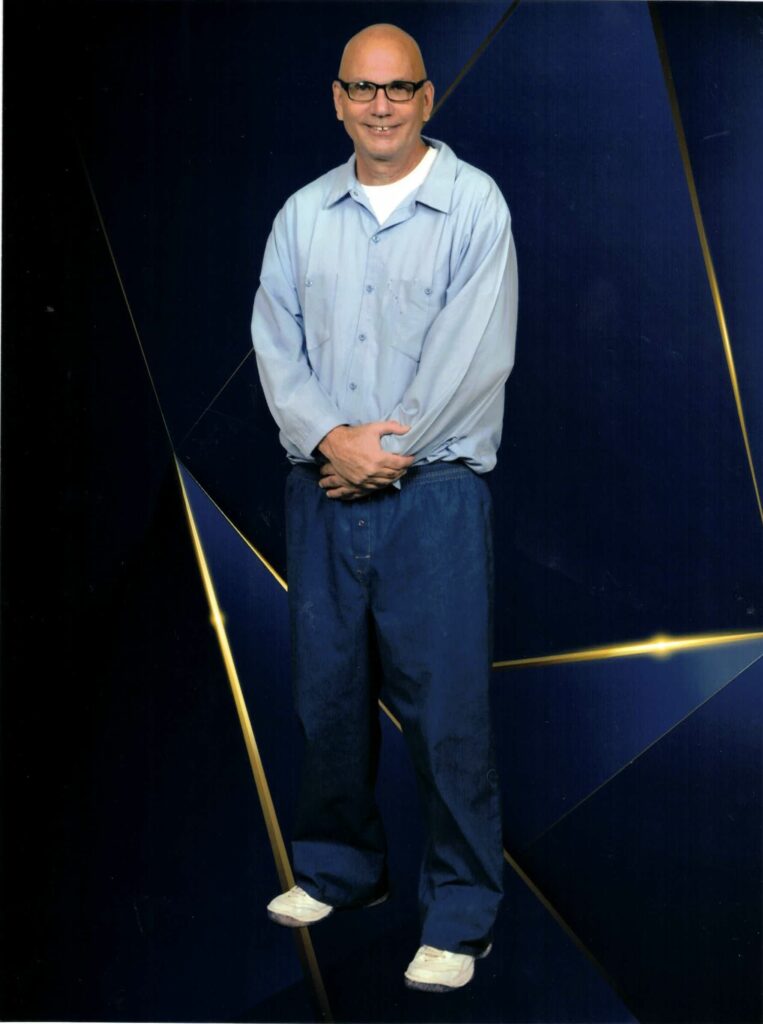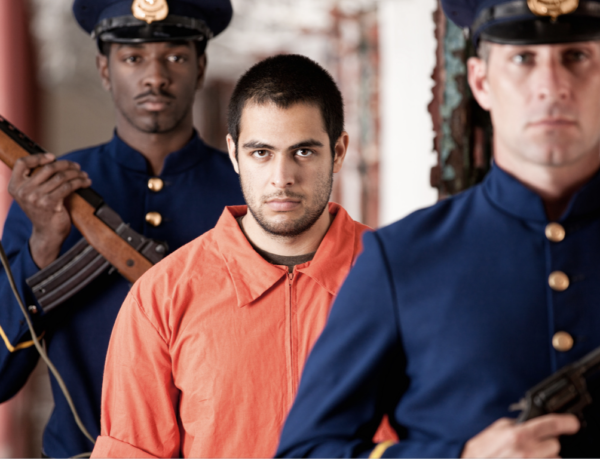I read with interest “Gratitude” by Cesar Hernandez on Minutes Before Six. In the first paragraph, he wrote his mindset is trying to see things as glass half full by default. My thought is the glass is neither half empty nor half full; I just have the wrong size glass.
When I was arrested in 1982 and sent to San Quentin’s Death Row in 1984, I thought much like Cesar that the only way I would leave high walls with locked gates was through pine box parole. I’m grateful I received a new trial and a sentence of Life Without Possibility of parole, so I don’t have to follow in the footsteps of now deceased friends into the execution chamber.
I’ve heard people say they would rather be executed than spend years, decades, perhaps the rest of their lives in prison. I’m thankful I have had the opportunity to become sober, attend college and receive my two-year degree, participate in self-help groups and work on becoming a happier more productive person.
Cesar wrote that he doesn’t understand why people get so mad when they are denied parole.
I don’t know anything about parole in Texas where Cesar is housed. I do know in California that for years and years none of the lifers with the opportunity to go before the Parole Board were found suitable and granted release. Generally, the Parole Board cited the circumstances of the crime also known as case factors to deny the lifer prisoner a second chance. This is nonsensical since the court sentenced the prisoner after a trial, that took days, weeks, even months, to life with the possibility of parole which, by definition, gives the prisoner a chance for parole and reentry into society someday. The extensive trial is all about the circumstances or case factors that led to the arrest and trial, so for the Parole Board after a review of just a couple of hours to use those same circumstances that will never, ever change to then deny parole was ludicrous. For years many of the parole commissioners never voted to grant parole, and the State Legislature discussed defunding the Parole Board. After all, why pay a six-figure salary to a commissioner who never voted to parole anyone?
The blanket denial of parole to lifer prisoners made conditions inside prison very difficult and dangerous. Prison gangs would tell young lifer prisoners that they were sent to prison to die, so they needed to put in work which meant engage in violence to build a yard rep so guards and prisoners would respect them. Lifers would volunteer to stab someone and receive a rules violation report and a security housing term, so they could come back out of the hole months or years later and assume leadership positions within prison gangs and perpetuate the cycle of violence.
The Parole Board can no longer deny parole to anyone for case factors, although the Governor reviews all prisoners who are found suitable for parole and has greater latitude in denying parole, especially in high publicity cases. Now, the criteria are largely if the prisoner has attended self-help groups, classes, and gained insight into the causative factors such as anger, alcoholism, addictions, criminal thinking, domestic violence, and gang participation, among others, that led him to offend and acquired tools to address his behavior, he will be seriously considered for parole. There are other factors such as a prisoner’s disciplinary, education, and work history in prison, as well as laudatory chronos from supervisors and corrections staff. The prisoner’s psychiatric examination, including their metric for recidivism, is evaluated. The board will also consider the prisoner’s relapse prevention plan upon release, as well as his parole plans including housing, transportation, and community assistance.
With only a few exceptions, nowadays my experience is that prisoners in California don’t seem to become really angry when they are denied parole by the board. The commissioners tell them why they were found unsuitable and let them know what they need to do to prepare for their next hearing. If prisoners do the work in examining and changing their behavior and lives, they can even petition for an early rehearing. Generally, when someone is denied, he will speak to the self-help groups letting other prisoners know what kind of questions were asked and what the commissioners told them they need to address. The prisoner facilitators of the self-help groups will work with the prisoner denied parole and develop a process, a path for the prisoner to follow to prepare for his next hearing, including cognitive behavioral correspondence and in¬-person classes and also engage with him in mock hearings, so he can more appropriately and effectively present what he’s identified as his causative factors and how he addresses them and keeps from relapsing. I’ve seen prisoners receive a five-year denial and the very next day start to prepare for their next hearing.
I am grateful that the new Parole Board policy has largely broken the control prison gangs had over lifers. Through sheer good fortune, I did not severely hurt anyone since my arrest in 1982. When I became sober in 1991, I put violence behind me and have not hurt anyone at all. Although I’m currently not eligible to appear before the Parole Board, I have been given the opportunity to enter into a process of cognitive behavioral therapy which has allowed me to identify and address my personal problems. Yes, I do see a few lifer prisoners attending self-help groups with me that are looking for the “magic words” they can memorize and recite to the board that they believe will set them free. The Parole Board seems to be able to easily identify the fakers, the magical thinkers who are not willing to put in the work and embrace a positive, productive life, and they consistently receive five-year denials for lack of insight. Perhaps one day I will be resentenced and given the opportunity to appear before the board to discuss my process, my progress, and suitability for parole.
Cesar wrote about how prisoners complain about prison conditions including food, showers, and recreation.
Prisoners always complain about the conditions. When I was in the Navy, we complained about food, ship’s store, sleeping arrangements, opportunity to exercise, so I think these kinds of complaints are universal and probably occurred in cave men, Greek city states, the Roman Empire, Middle Ages, Renaissance, every century with mankind.
Although I complain with everyone else, I am grateful that the State of California’s increased monitoring through cameras, including body cameras on custody staff, has increased the accountability of everyone inside prisons. You don’t see as much brutal violence from prisoners and corrections staff that I experienced in my first few decades in prison. There’s very little room to spin the facts of an incident later when everything is captured on camera.
In an effort to decrease prisoners’ sense of isolation and promote contact with family and loved ones, California has issued electronic tablets to every prisoner with unlimited free phone calls and twenty free messages a week. I’m grateful for the chance to be present in the lives of people who care about me.
I understand Cesar’s frustration when he hears unrelenting negativity from other prisoners. You have to embrace that you can’t control their attitude; all you can do is control your reaction to it. You can use humor, self-talk and, if all else fails, distance yourself from the complainers. I hope Cesar finds an accountability partner to help him stay on course and develops a support network outside of prison to lend guidance when he feels overwhelmed. Cesar appears fairly young in his MB6 photo and I think he’s on the path to personal growth and perhaps a productive future.
I’m encouraged that Cesar engages with life coaches and field ministers, and he’s learning empathy and reaches out to others. Cesar seems to be developing patience and is open to learning lessons of wisdom that will serve him well no matter where he spends the rest of his life.




1 Comment
Gratitude - Minutes Before Six
December 19, 2023 at 3:30 pm[…] To read a reflection on Cesar’s essay written by Michael Wayne Hunter, click here […]